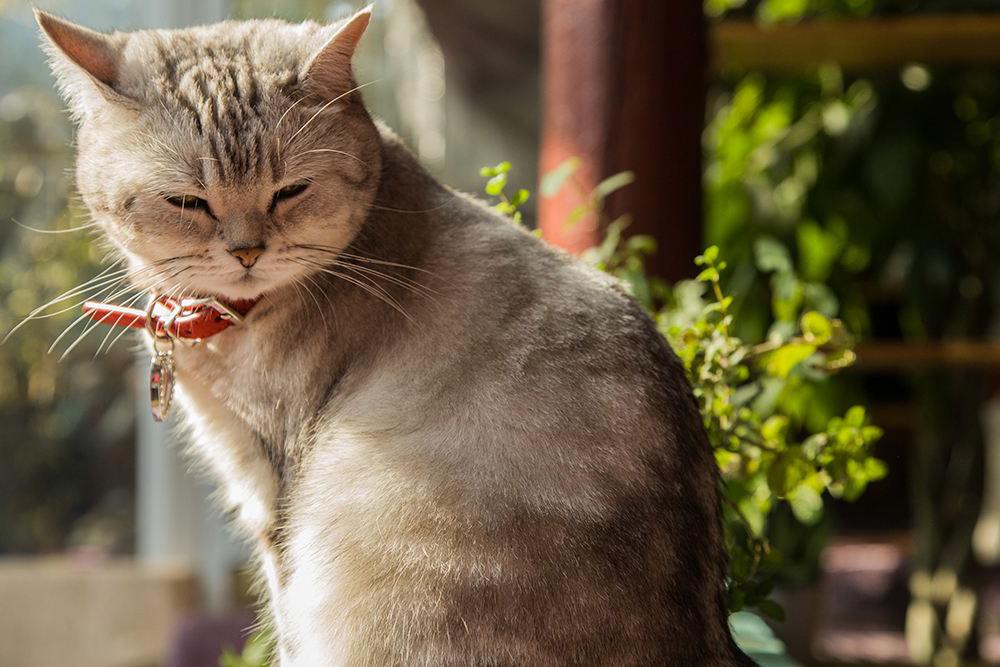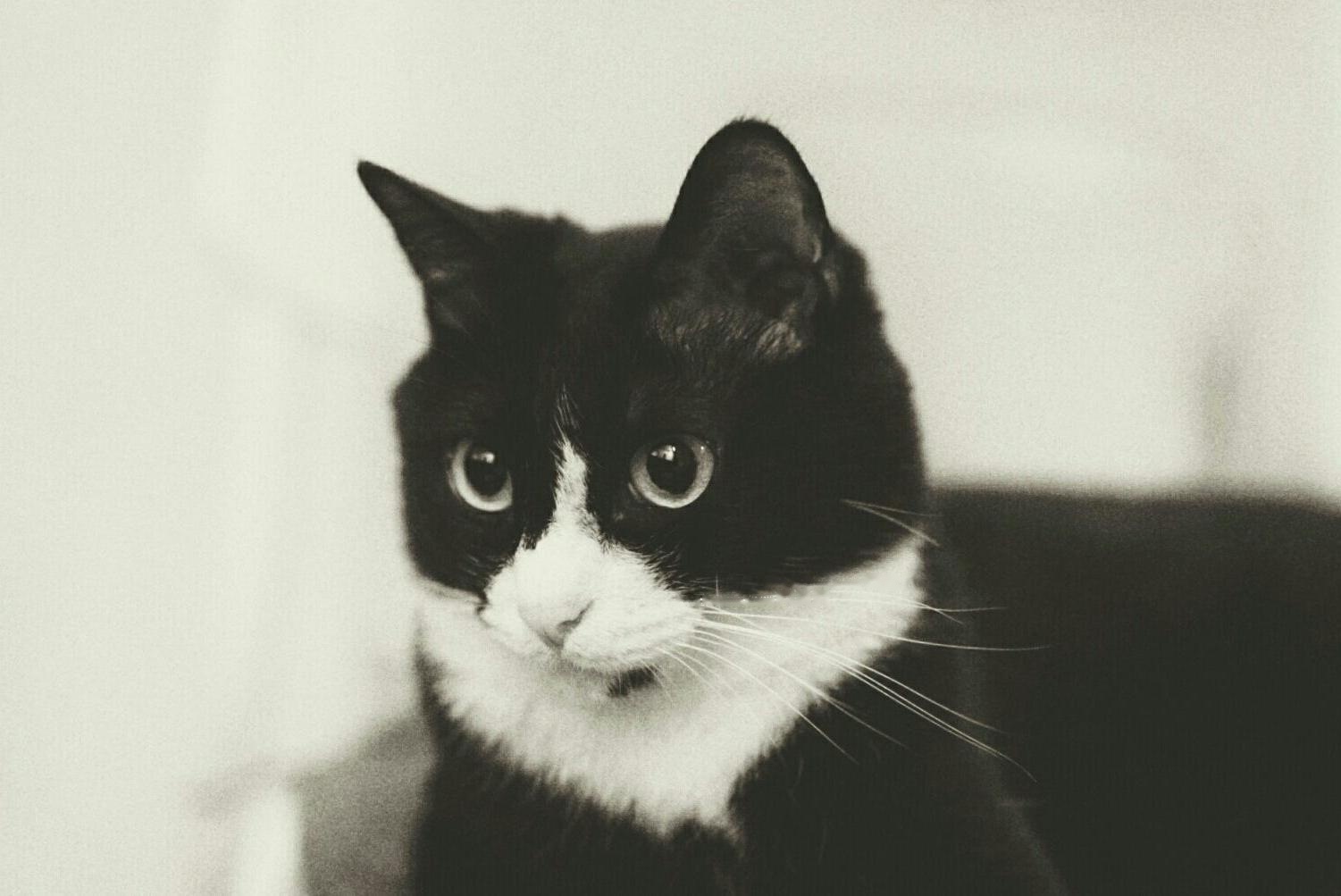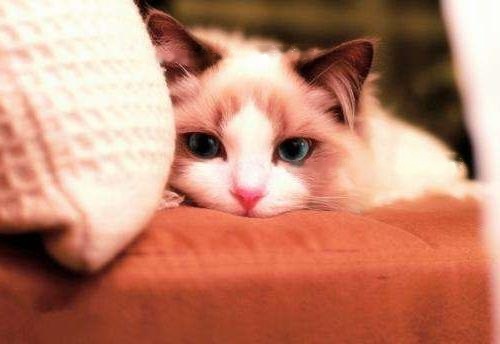What's the matter with a well-raised cat who suddenly vomits? Cat vomit has always been the heart disease of shit shoveling officers. Today we'll take a look at the major causes of cat vomit.

Eating too fast
Even healthy cats eat too fast or too fast In many cases, it may cause vomiting. Shit shoveling officers should usually pay attention to the amount of cats' diet to avoid cats being overwhelmed; at the same time, they should develop the habit of fixed-point feeding to prevent cats from being too hungry.
Some owners give their cats a lot of snacks every day, such as raw meat, sausage, animal liver, nuts, fruits, vegetables, etc., and think that this way the cat will grow better. In fact, these treats can overburden the cat's gastrointestinal tract, causing the cat to vomit.
If the cat vomits shortly after a meal, and there is almost no digested food in the vomit, it can basically be judged that the cat vomits due to diet.
Sudden change of food
Some owners do not know the regularity of cat food change, but suddenly change cat food. In this case, it is easy to cause the cat to vomit. It takes a transition period to change the cat food. When changing the food, you can add a little new cat food to the old food, then gradually increase it, and finally completely replace it with new cat food. The owner can control the time to replace the cat food, preferably around 7-10 days.
Stress Response
I believe everyone is familiar with Stress Response. When the cat is mildly stressed, there will be diarrhea, reduced food intake or even hunger strike, and the kitten will vomit.
For timid cats, it is best for owners to reduce the stimulation of strangers and unfamiliar environments. If you want to take the cat to an unfamiliar environment, you can give the cat a cardboard box and prepare some toys, cat litter pads, and the owner's clothes that he usually likes to play with. Smelling the familiar smell can soothe the cat's mood.

Swallowing foreign objects
Many cats accidentally put some Small things are swallowed, causing acute vomiting. These small things will cause indirect vomiting or anorexia when they are swallowed in the stomach. When they enter the small intestine, they will cause obstruction. The cat will continue to vomit, and even if there is no food, it will still spit out a lot of liquid. Cats with severe vomiting may even become dehydrated and become weak.
Chronic Diseases
Many chronic diseases can cause frequent vomiting in cats, such as pancreatitis, chronic renal failure, feline diabetes , fatty liver, etc.
Chronic vomiting is more common than acute vomiting. At first the cat vomited very rarely (less than once every two months), then slowly (over a month to a year), the frequency of vomiting increased to three days a week or even once a day. Under normal circumstances, cats still have appetite after vomiting and are in good spirits, so this type of vomiting is often referred to as hairball disease.
Food Poisoning
Spoiled food, toxins, or foreign objects can cause cats to vomit. When cats swallow some food that is difficult to digest and absorb, they will also experience different degrees of vomiting.
In addition, cats can also vomit if they accidentally eat toxic items such as human medicines, toxic cleaners, and pesticides in the home. At this time, the cat should be taken to the hospital as soon as possible, and the doctor will deal with it.

Hairballs
Cats have a habit of licking their fur, so they often Swallowing hairs by mistake can cause stomach irritation and acute vomiting. The swallowed hair must be excreted by vomiting or feces, so cats with excessive licking or long hair are more likely to vomit hairballs.
If the cat still has appetite after vomiting the hairball, and does not vomit again after eating, you can feed the hair cream first to observe. However, if vomiting is frequent and even causes the cat to go on a hunger strike, it may be necessary to go to the hospital to prevent further vomiting or cat dehydration.
Parasites
When a cat has parasites in its body, it can also cause the cat to pull, vomit, and even have blood in the stool. If there are worms in your cat's vomit or stool, deworm your cat as soon as possible. More serious, it is necessary to take to the hospital as soon as possible. The best way to prevent parasites is to deworm your cat once a month.
Unvaccinated kittens or kittens that have been vaccinated incorrectly have a high chance of developing feline distemper if they happen to be exposed to the virus. The most effective way to prevent feline distemper is vaccination. Therefore, vaccination is an essential thing for cats.
Causes of cat vomiting are complicated.
![[Dog Training 5] The training method of pet dog dining etiquette](/static/img/12192/12192_1.jpg)






